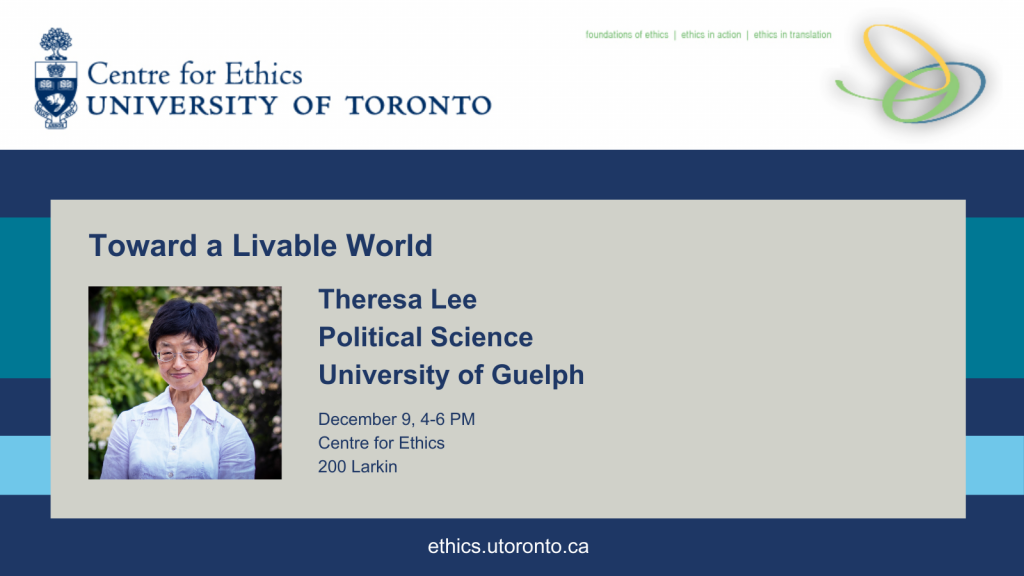
► To stay informed about other upcoming events at the Centre for Ethics, opportunities, and more, please sign up for our newsletter.
Toward a Livable World
As the concluding chapter of a book manuscript, the paper starts with the very fact that humans are living organisms with basic needs that are biologically predetermined, namely, air, water, food and shelter from the elements. Building on “livability,” a word coined by a 19th century English doctor, Edward Johnson, to depict “the aptitude or fitness to live,” the paper considers livability as a distinct normative space for us to understand who we are as creatures that are fundamentally disconnected with their physiology. In the history of Western political thought, there appears to be an assumption that the body is simply there. Yet that body cannot simply be taken for granted because it needs air, food, water, and shelter. In other words, the body is not a self-contained entity. The paper argues that taking care of the physical body is by definition a political question as it involves being in an environment where necessities can be secured. To address the problematic, the chapter turns to a key concept in Confucianism, which is self-cultivation. The self in this term is the moral character of a person. By looking at the etymology of the two Chinese characters that make up the term, the paper posits a normative framework that puts the body squarely as the starting point of being; without which neither the cultivated person nor the right-bearing individual can thrive.
► This event is in-person. Join in person at the Centre for Ethics (Larkin Building room 200).

Theresa Lee
Political Science
University of Guelph
Mon, Dec 9, 2024
04:00 PM - 06:00 PM
Centre for Ethics, University of Toronto
200 Larkin
